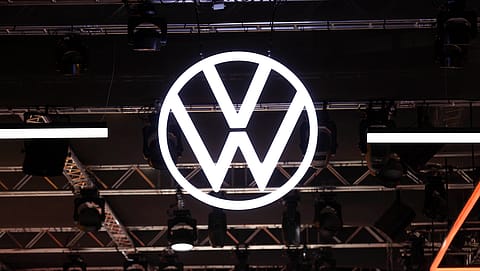Volkswagen sues India over $1.4 billion tax demand, says investment in jeopardy
Volkswagen has challenged India's $1.4 billion tax demand, citing risks to its investment and the country's foreign investor climate.

German carmaker Volkswagen is suing Indian authorities over a tax demand of $1.4 billion, calling it "impossibly enormous" and arguing that it contradicts the country's import taxation rules. As reported by Reuters, the German automaker has claimed that the demand jeopardises its $1.5 billion investment in India and undermines India's attractiveness to foreign investors.
The dispute traces back to a September 2023 tax notice issued by Indian customs, accusing Volkswagen of evading higher import duties by breaking down vehicle imports into individual parts. India says that Volkswagen imported "almost the entire" car in unassembled form but classified the shipments as individual components, thereby paying a lower duty of 5-15% instead of the 30-35% typically applicable to completely knocked-down (CKD) units.
However, Volkswagen contended that it informed the Indian government of its "part-by-part import" strategy in 2011 and received clarifications supporting its approach. In a 105-page court filing, the company has argued that the tax notice contradicts previous assurances from the government and "places at peril the very foundation of faith and trust" that foreign investors need to operate in India.
However, Volkswagen's Indian unit, Skoda Auto Volkswagen India, stressed its commitment to complying with both local and global laws while exploring all legal options.
A High-Stakes Dispute
This tax controversy comes at a challenging time for Volkswagen, which is grappling with weak demand in Europe and fierce global competition. In India, with the likes of Maruti Suzuki and Tata Motors dominating the auto market, Volkswagen is a relatively minor player, with its Audi brand trailing luxury competitors like Mercedes and BMW. For the fiscal year 2023-24, Volkswagen India reported sales of $2.19 billion and a net profit of just $11 million. If Volkswagen loses the case, it could face penalties that would bring the total tax liability to $2.8 billion—nearly double its annual profits.
The "Kit" Controversy
Recommended Stories
At the heart of the dispute is the definition of a "kit." Indian authorities claim that Volkswagen used internal software to place bulk orders for vehicles, which were then broken down into 700-1,500 individual parts per vehicle and shipped separately over time. They assert that this was a deliberate effort to circumvent higher import duties.
Volkswagen, on the other hand, argues that the parts were not solely designated for specific vehicles and that the software simply tracked consumer demand. The company likened its import process to purchasing a chair online, where all necessary components are shipped together in one package. In contrast, Volkswagen contends that its parts were shipped separately and then combined with locally sourced components to assemble vehicles in India.
The Mumbai High Court is set to begin hearings on the case on February 5.